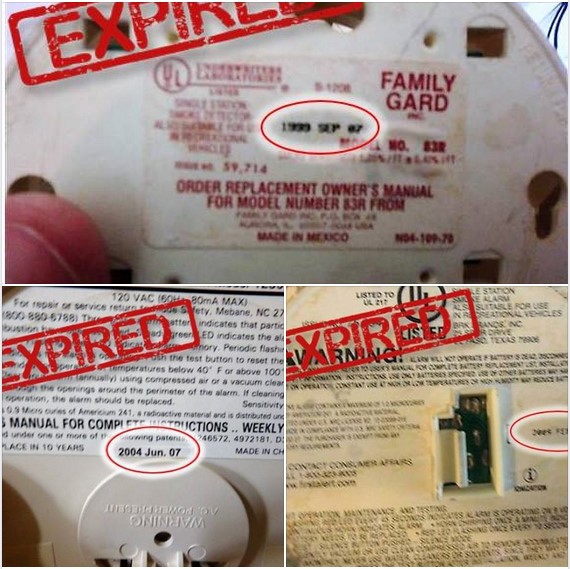Did you know that smoke alarms have an expiration date ?
Lifespans may vary from model to model; but, almost all smoke alarms have a lifespan of 10 years or less. Internal smoke sensors break down over time and lose their sensitivity with age.
The less sensitive the detector is, the longer it takes to sound an alarm. In a fire, early warning time is critical to making a safe escape. Just a few seconds could make the difference between life and death.
How to tell if the smoke alarms are expired ?
The start of heating season is a great time to replace the batteries in smoke detectors and check their expiration date. (If your smoke alarms are hardwired or you have a security alarm system, consider hiring an electrician to do this for you.)
Take a look at the label on the back of the unit. Most manufacturers list the date of manufacture, a replace by date and a recommended life span. If the unit doesn’t have any indication of date, replace it.
Some other clues that smoke alarms are expired:
Color of the units are no longer a bright white and appear beige/brown/yellow-ish.
The age of the home is over 10 years.
Constant chirping sounds from one or more units in the house, that don’t go away by replacing their back up batteries
But I pressed the “push to test” button and everything is fine.
Not really. The “push to test” button only test’s the unit’s ability to sound an alarm. It does not test the sensors ability to sense smoke. The button may sound an alarm properly, even when the unit is no longer functional.
Other important facts about smoke alarms.
Three of every five home fire deaths resulted from fires in homes with no smoke alarms or no working smoke alarms (NFPA).
The early detection of fires is critical and just a few seconds of extra time to escape can save lives and reduce injuries.
Smoke alarms can be purchased for as little as $4 at most home centers.
If you would like further information, we are always glad to answer any questions; feel free to email us at info@TrustPointInspections.com
To learn more about Smoke Detectors visit the NFPA’s website at:
http://www.nfpa.org/public-education/by-topic/smoke-alarms

